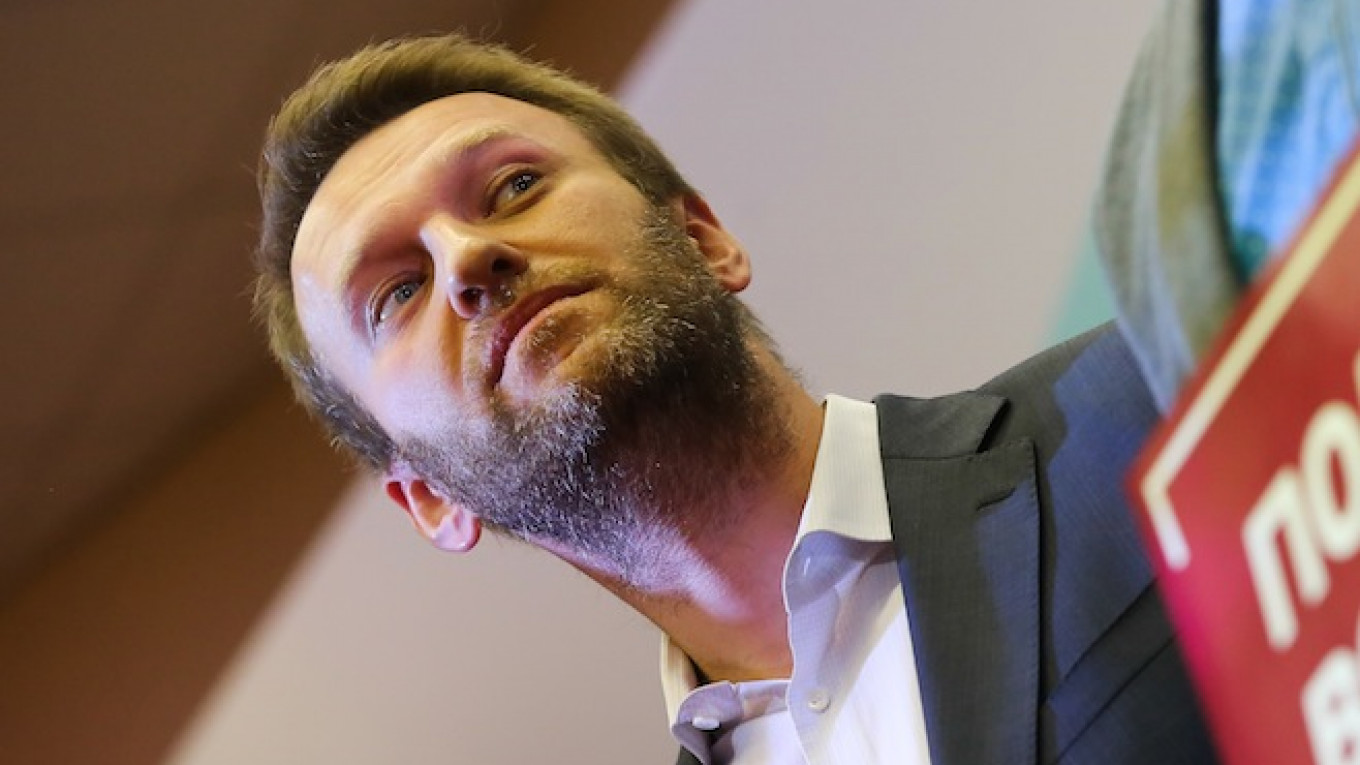Moscow's Presnensky district court has declined to process Russian opposition leader Alexei Navalny's lawsuit against Prosecutor General Yury Chaika and the opposition-leaning Echo Moskvy radio station, the RBC news agency reported Tuesday, citing court spokesperson Nina Yurkova.
This lawsuit is one of many attempts that Navalny has made to sue Chaika for defamation — last year five Moscow district courts refused to register his lawsuits, giving various reasons for their refusals.
On Dec. 1, Navalny's Anti-Corruption Foundation released “Chaika,” an investigative film that accused Chaika's family members, including his two sons, of being involved in shady business deals and various illegal activities.
Two weeks later Chaika accused a British-American investor William Browder and the U.S. secret services of being behind the film and claimed Navalny ?€?played a humble role in this story.?€?
?€?I have no doubt that this full-of-lies film was ordered by Bill Browder [head of the Hermitage Capital investment fund], and secret services behind him,?€? Chaika was quoted as saying in a letter published by the Kommersant newspaper on Dec. 14.
After three Moscow courts declined to process Navalny's suits, he decided to sue media outlets that had published Chaika's letter ?€” the Kommersant and Vedomosti newspapers, the Ekho Moskvy radio station, the Slon news website, the RBC news agency and the Dozhd TV channel ?€” along with the Prosecutor General, in order to have the suits processed by courts.
?€?I apologize to the respectable outlets in advance for the inconvenience, unfortunately, we have to make them official co-defendants [in these suits] in order for our courts to finally accept the suits,?€? Navalny wrote on his blog on Dec. 29.
A Message from The Moscow Times:
Dear readers,
We are facing unprecedented challenges. Russia's Prosecutor General's Office has designated The Moscow Times as an "undesirable" organization, criminalizing our work and putting our staff at risk of prosecution. This follows our earlier unjust labeling as a "foreign agent."
These actions are direct attempts to silence independent journalism in Russia. The authorities claim our work "discredits the decisions of the Russian leadership." We see things differently: we strive to provide accurate, unbiased reporting on Russia.
We, the journalists of The Moscow Times, refuse to be silenced. But to continue our work, we need your help.
Your support, no matter how small, makes a world of difference. If you can, please support us monthly starting from just $2. It's quick to set up, and every contribution makes a significant impact.
By supporting The Moscow Times, you're defending open, independent journalism in the face of repression. Thank you for standing with us.
Remind me later.


